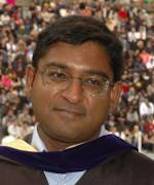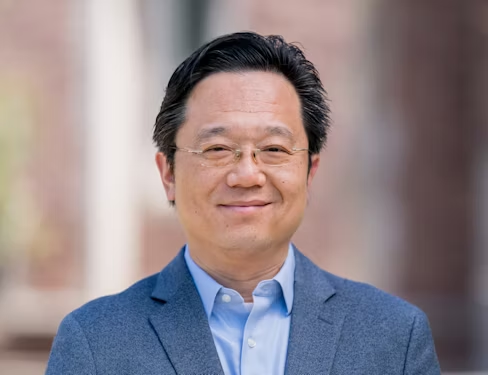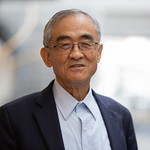CPS-IoT Week 2024 Keynote
Resilience of Cyber-Physical Systems: Definition, Issues, Approaches, and Examples
Date: May 14, 2024, 8:45am-9:45am
Speaker: Kang G. Shin, The University of Michigan, USA
Chair: Chenyang Lu, Washington University in St. Louis
Abstract: I will first re-introduce the original concept of cyber-physical systems (CPSes), especially differentiating CPSes from other well-known systems such as embedded (real-time) systems, sensor networks, etc. I will then discuss how to characterize the resilience of CPSes, and present research challenges and possible approaches. Lastly, I will discuss several examples of resilient CPSes, including real-time control systems, battery management for transportation platforms, and secure in-vehicle communications, to illustrate how to deal with issues of CPS resilience.
Bio: KANG G. SHIN is the Kevin & Nancy O'Connor Professor of Computer Science in the Department of Electrical Engineering and Computer Science, The University of Michigan, Ann Arbor. His current research focuses on safe and secure embedded real-time and cyber-physical systems as well as QoS-sensitive computing and networking.
He has supervised the completion of 91 PhDs, and authored/coauthored about 1,000 technical articles, a textbook and about 60 patents or invention disclosures, and received numerous awards, including 2023 IEEE TCCPS Technical Achievement Award, 2023 SIGMOBILE Test-of-Time Award, 2019 Caspar Bowden Award for Outstanding Research in Privacy Enhancing Technologies, and the Best Paper Awards from 2023 VehicleSec, 2011 ACM International Conference on Mobile Computing and Networking (MobiCom’11), the 2011 IEEE International Conference on Autonomic Computing, 2010 and 2000 USENIX Annual Technical Conferences, as well as the 2003 IEEE Communications Society William R. Bennett Prize Paper Award and the 1987 Outstanding IEEE Transactions of Automatic Control Paper Award. He has also received several institutional awards, including the Research Excellence Award in 1989, Outstanding Achievement Award in 1999, Distinguished Faculty Achievement Award in 2001, and Stephen Attwood Award in 2004 from The University of Michigan (the highest honor bestowed to Michigan Engineering faculty); a Distinguished Alumni Award of the College of Engineering, Seoul National University in 2002; 2003 IEEE RTC Technical Achievement Award; and 2006 Ho-Am Prize in Engineering (the highest honor bestowed to Korean-origin engineers).
He has chaired Michigan Computer Science and Engineering Division for 4 years starting 1991, and also several major conferences, including 2009 ACM MobiCom, and 2005 ACM/USENIX MobiSys. He was a co-founder of a couple of startups, licensed some of his technologies to industry, and served as an Executive Advisor for Samsung Research.
CPS-IoT Week 2024 Keynote
From Wireless Sensors to Perceptual Networks
Date: May 15, 2024, 8:45am-9:45am
Speaker: Prabal Dutta, University of California, Berkeley, USA
Chair: Xiaofan (Fred) Jiang, Columbia University
Abstract: A quarter century ago, a set of MobiCom challenge papers catalyzed a research community to pursue the vision of wirelessly networked sensors of increasingly diminishing proportions that could densely monitor the physical world. Today, much of the original vision had been realized, and a bewildering array and variety of systems have been fielded that allow us to gather and process unprecedented amounts of data about the physical world. But this progress has also exposed many new challenges and opportunities. This talk will draw on my lab’s efforts in designing, deploying, and commercializing wireless sensors for a range of applications. The evolution of these efforts—from seemingly trivial connected sensors with simple cloud analytics to more complex networked sensors with sophiscated sensing and communications to sustainable perceptual networks that perform multi-spectral data fusion and inference at the edge to detect complex but sparse faults—has highlighted numerous exciting technical and methodological challenges ripe for attention from the research community.

Bio: Prabal Dutta is a Professor of Electrical Engineering and Computer Sciences at University of California, Berkeley. His interests span circuits, systems, and software, with a focus on mobile, wireless, embedded, networked, and sensing systems that have applications in health, energy, and the environment. His work has yielded dozens of hardware and software systems, has won a Test-of-Time Award (SenSys’22), five Top Pick/Best Paper Awards (MICRO’16, SenSys'10, IPSN'10, HotEmNets'10, and IPSN'08), two Best Paper Nominees, numerous demo, design, poster, and industry contests, has been directly commercialized by a dozen companies and indirectly by many dozens more, and is on display at Silicon Valley’s Computer History Museum. His work has been recognized with an Okawa Foundation Grant, a Sloan Fellowship, an NSF CAREER Award, a Popular Science Brilliant Ten Award, and an Intel Early Career Award. He has served as a program chair for MobiSys, BuildSys, SenSys, IPSN, HotMobile, ESWEEK IoT Day, HotMobile, and HotPower, as general chair for EWSN, and as a member of the DARPA ISAT Study Group. He holds a Ph.D. in Computer Science from UC Berkeley and an MS in Electrical Engineering and a BS in Electrical & Computer Engineering from The Ohio State University. He has co-founded several companies based on his research including Cubeworks, Gridware, nLine, and Vizi.
CPS-IoT Week 2024 Keynote
AI for Health with Wearables
Date: May 16, 2024, 8:45am-9:45am
Speaker: Chenyang Lu, Washington University in St. Louis, USA
Chair: Tarek Abdelzaher, University of Illinois
Abstract: Artificial intelligence (AI) has emerged as a powerful tool for solving complex health problems using data-driven approaches. AI for health is fueled by both the advancement in AI methods and the availability of data provided by electronic health records (EHR) and wearables. This talk will explore the potential to support precision medicine using wearables that enable unobtrusive monitoring of patients in their daily lives. To harness the full potential of wearables, it is crucial to develop machine learning (ML) models to extract reliable clinical information from noisy and incomplete sensor data. Moreover, these ML approaches need to scale effectively across a wide range of sample sizes, providing robust predictions even with limited data, while enhancing predictive power with large datasets. We will highlight three clinical studies that use Fitbit wristbands as wearable instruments. First, we have established a robust feature engineering and ML pipeline specifically tailored for wearable studies with limited sample sizes. This pipeline demonstrated its effectiveness in predicting post-operative complications in a prospective clinical trial of patients undergoing pancreatic surgery. Second, we have developed WearNet, an end-to- end deep learning model designed to detect mental health disorders using wearable data. WearNet has been trained and validated on a large public dataset comprising 8,996 participants, including 1,247 diagnosed with mental disorders. Finally, we have explored multi-task ML approaches to predict individualized responses to depression therapy based on wearable data collected in a randomized controlled trial (RCT). By the end of the talk, we will discuss the opportunities and directions in the interdisciplinary field of AI and wearables for health, showcasing the transformative impact they can have on healthcare outcomes.

Bio: Chenyang Lu is the Fullgraf Professor of Computer Science & Engineering and holds joint appointments as Professor of Anesthesiology and in Medicine at Washington University in St. Louis. He is the founding director of the AI for Health Institute (AIHealth), a multidisciplinary institute dedicated to driving AI innovation in health research. His research interests include AI for health, Internet of Things, real-time systems, and cyber-physical systems. In 2022, he was honored with the Outstanding Technical Achievement Award and Leadership Award from the IEEE Technical Community on Real-Time Systems (TCRTS). He has also been recognized by a Test of Time Award from ACM Conference on Embedded Networked Sensor Systems (SenSys), an Influential Paper Award from IEEE Real-Time and Embedded Technology and Applications Symposium (RTAS), and nine Best or Outstanding Paper Awards. He is Editor-in-Chief of ACM Transactions on Cyber-Physical Systems. He also served as Editor-in-Chief of ACM Transactions on Sensor Networks, Chair of TCRTS and chaired leading conferences on IoT, real-time systems, and cyber-physical systems. He is a Fellow of ACM and IEEE.


